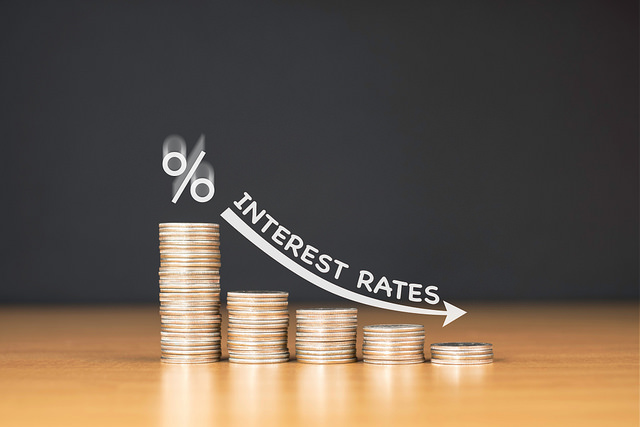
Follow This Guide To Build Your Credit Score and Get Loans Sanctioned At Lower Interest Rates
A credit score is a three-digit number that lies between 300 to 900 wherein a score of 700 plus is good for approval of loans and credit cards. Whenever an individual or business applies for one of these services, the issuing authorities check their credit score to assess the risk associated with the transaction.
The higher the credit score, the more likely it is that the person will receive a loan with a low interest rate. On the other hand, a lower credit score might lead to the application being rejected.
Analysis of the Credit Scores to Get Loans Sanctioned
High credit scores are important if you want to take loans. A credit builder may help you to analyse your current credit rating and how you can build it up. Let us check out various ranges of credit scores and what they reveal about one’s financial health.
A Credit Score of 750-900
This is a perfect score to maintain and can help you get the best loan options and credit cards with low interest rates. A rating between these values signifies that you are financially well and responsible, and sets the course for a good relationship with credit lenders.
A Credit Score of 700-750
A credit score between 700-750 is good, and opens you up to several options in terms of loans and other benefits, with relatively lower interest rates. Further, it points to the responsible use of finances and your creditworthiness.
A Credit Score of 550-700
This is an average credit score and generally will not be accepted by many financial institutions when you request credit. However, sometimes, lenders are willing to provide you with a secured loan, albeit, at a higher interest rate.
A Credit Score of 300-550
This is a poor credit score and could be the result of a pattern od delayed payments or overutilisation of your credit cards. If your credit score falls in this bracket, you’re most likely to be denied a loan or a credit card due to a lack of credibility.
Reasons for Creating a Good Credit Score as a Practice
There are so many reasons why a good credit score can be of great help at a time of financial hardships, such as:
1. Increases Eligibility for Credit Card and Loan Approval
While having an excellent credit score doesn’t guarantee approval, it can definitely enhance its chances. An individual can apply for a loan or credit card with confidence when they have a high credit score.
2. Builds a Strong Credit History
Good credit history is a sign of effective financial management skills and builds trust in the market.

3. Power of Negotiation for Low-Interest Rates on Credit Cards and Loans
With a good credit score, you can negotiate for the best interest rates. The less money you pay as interest, the faster and easier it will be able to pay off your debt.
4. Approval for Higher Limits
One of the advantages of having a good credit score is that banks are willing to let you borrow a higher amount of money as you’ve demonstrated that you pay back what you borrow in time.
5. Easier Approval for Rental Houses and Apartments
It’s common practice for many landlords to use credit scores as part of their tenant screening process. A good credit score can conveniently help you find a landlord who will readily approve your rental application.
6. Better Car Insurance Rates
These days auto insurers use your credit score to develop your insurance risk score and car repair loans, so you pay less for insurance on various products.
7. With a Good Credit Rating, You Can Avoid Security Deposits on Utilities Like a Cell Phone
With agood credit score, you won’t have to pay a security deposit when buying a new product, establishing a utility service in your name, making deposits to avail or transferring services to another location.
Factors That Affect Your Credit Score
Let us go through the main factors that affect your credit score:
- Repayment history is all about how you’ve managed your debts and liabilities in the past, directly impacting the credit score.
- Credit card applications or loan inquiries – the number of applications and inquiries made to get new loans or credit cards can also impact your credit score.
- Maintain a balance in credit – You must maintain a balance when applying for unsecured and secured loans.
- CUR or Credit utilisation Ratio – This is an imperative proportion that shows how much credit has been utilised out of the total credit available. A high CUR may negatively impact your credit score.
- Increase in your credit card limit – you might not know this, but the number of requests to increase your credit card limit affects the credit score as it increases the number of hard inquiries made. This shows the extent of your dependence on credit, which works against you in the future.
- Lack of credit history – A nonexistent credit history is also not a good sign and shows your lack of involvement in the financial sector, and makes it difficult for the lender to diagnose your credibility and whether or not they can trust you to make timely repayments.
- Becoming a guarantor for the wrong person – Even if you have participated as a guarantor for someone who has defaulted, it will adversely affect your credit score.
- Errors in your credit report and financial information – Any error or mistake on behalf of the bank or financial institution can adversely affect your credit score; you must keep a close eye on these details to ensure that there aren’t any errors.
How to Improve Your Credit Score to Get Approvals on Loans
If you’re wondering how you can improve your credit score to increase the likelihood that your loan application is accepted, here are a few steps that you can follow:
1. Pay Your Credit Card Bill in Full
Many people only pay the minimum amount rather than paying the full amount on their credit card bills. This isn’t advisable, as it can have a negative impact. You must always pay your dues in full if you want your score to increase.
2. Try Not to Utilise the Entire Credit Limit
Create a budget and try not to reach the your credit card’s upper limit. This negatively impacts your score by showing your dependence on it.
3. Do Not Miss or Delay Any Scheduled Payments
Any missed payment directly impacts a third of your credit score, so you must always be consistent in making timely payments.
4. Always Opt for a Secured Loan.
Keeping something as collateral for a secured loan is always a better option when you’re looking to enhance your credit score.
5. Avoid Credit Card or Loan Settlement
Settling your financial dues before the stipulated deadline can often negatively impact your credit score. The best way forward is to stick to the prescribed monthly schedule.
6. Avoid Too Many Applications of Loans or Credit Card
Don’t fall into the trap of applying for every new credit card or loan available in the market. Every application turns into a hard inquiry, thereby affecting your credit score.
Conclusion
Credit cards and loans are the essential contemporary tools of quick trade and timely funding in case of an emergency. Thus, a good credit score is key to receiving these funds in such an emergency. Always keep track of your score and consistently work towards improving it by making timely payments on all your commitments.


